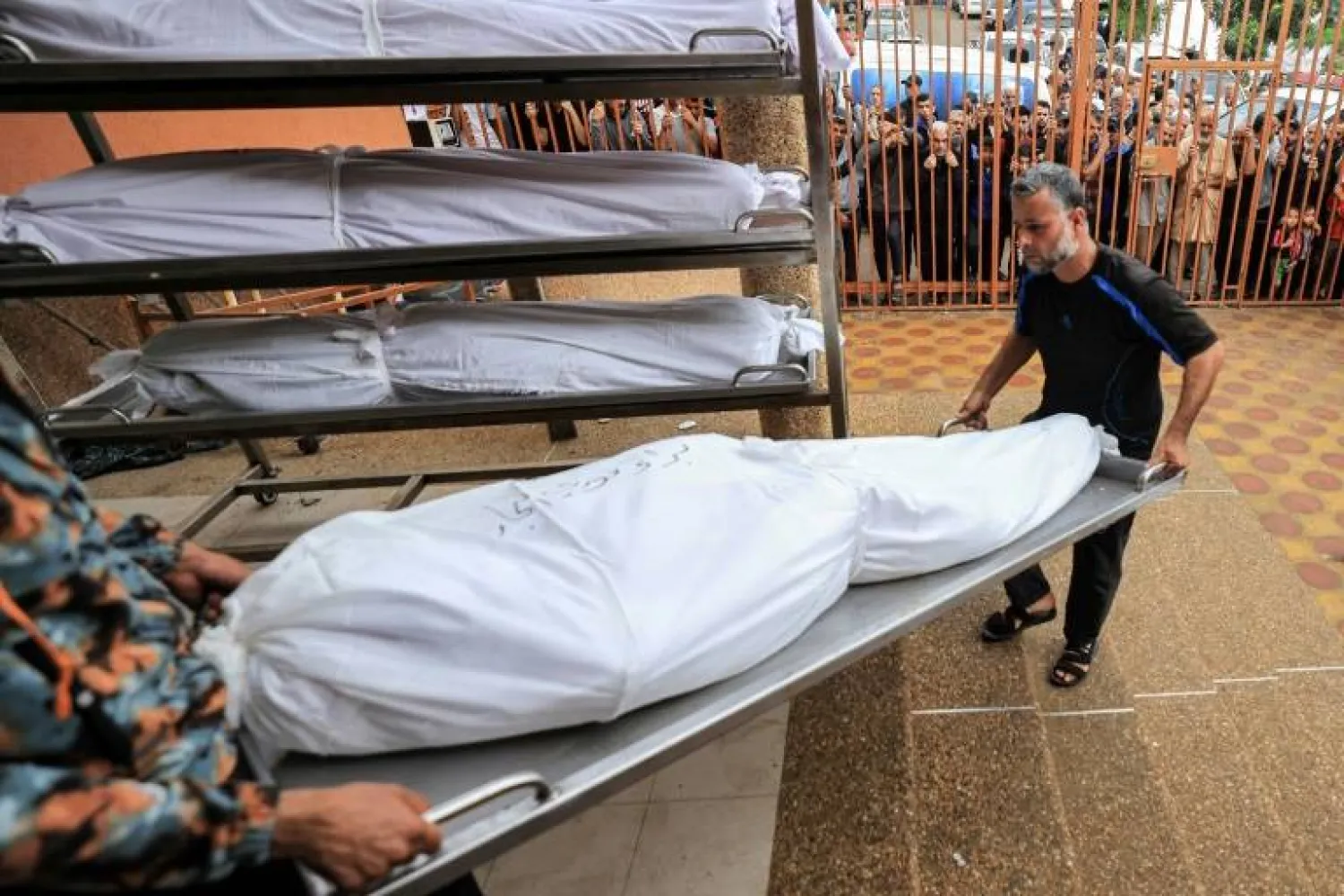A middle-aged man with a blank, shattered expression walked slowly down a ramp at the hospital, gently cradling in his arms a tiny body wrapped in a white shroud.
After the collapse of a week-long truce between Israel and Hamas, the Nasser hospital's morgue in Khan Yunis, southern Gaza, was full once again on Saturday.
A handful of women wept for their own children, while a group of men nearby prayed for the dead.
"My son Mohammed tried to get the women and children out of our tent" at a makeshift camp where they had sheltered inside a school, Jumana Murad said of the 19-year-old.
"But a piece of shrapnel hit him in the head... I saw his brains," she told AFP, before bursting into tears.
The family had left their home in Gaza City after the Israeli army told around 1.1 million people in the north of the Palestinian territory to move to avoid the fighting following Hamas militants' unprecedented October 7 attacks on Israel.
"They tossed out leaflets to tell us 'you will be safe in the south', so we went there," she said.
"My son is dead, my son Mohammed, who was a nice boy, and who listened to me whenever I needed to get something off my chest."
At her side, her daughter Joelle Murad shook in her red embroidered dressing gown, screaming out to God and to anyone in earshot.
"Why was my brother, who had nothing to do with militant groups, killed?" she cried. "What did we do? They want Hamas? What does that have to do with us?"
Men at Nasser hospital -- doctors, medical technicians, victims' loved ones -- brought out the corpses in white body bags.
Families gathered for one last look at the dead, caressing their hair, touching their hands or kissing their faces, sometimes still stained with blood.
To Gazans, the dead are "martyrs", so their bodies are not given the traditional Muslim funeral cleansing.
The bodies are carried out on stretchers, or on long metal trays from the morgue's cold rooms -- where electricity supplies are intermittent to non-existent.
Funerals are carried out quickly, and family members cannot always be reached, but the small crowd in the courtyard paused and gathered before all the bodies, reciting prayers for the dead.
The wrapped remains were loaded into ill-suited civilian vehicles -- ambulances are only for the living -- and taken away to rapidly filling cemeteries.
Behind them, more bodies were coming out of the morgue, one more mother cried for her son and the crowd readied for another funeral prayer.









